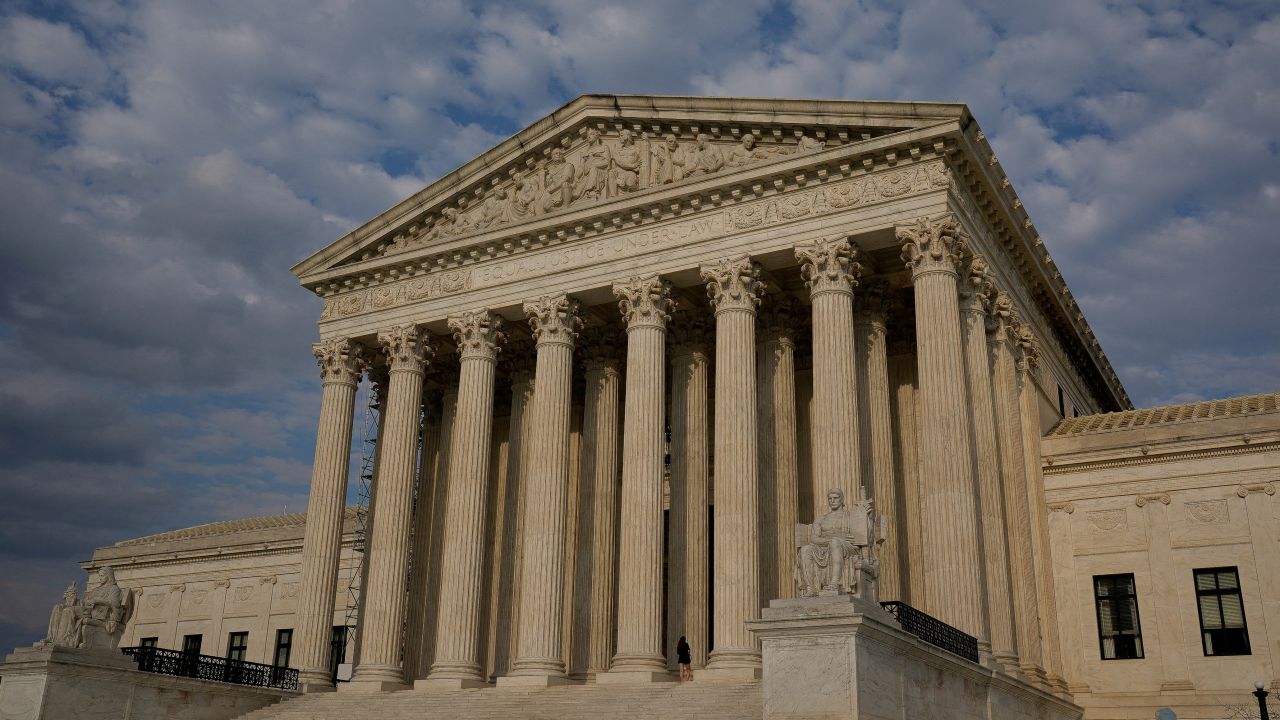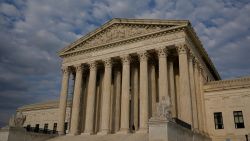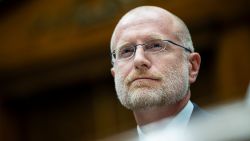In a stinging defeat for President Joe Biden, the Supreme Court blocked the administration’s student loan forgiveness plan Friday, rejecting a program aimed at delivering up to $20,000 of relief to millions of borrowers struggling with outstanding debt.
The decision was 6-3 with Chief Justice John Roberts writing for the conservative supermajority.
It will immediately become a potent issue in the 2024 presidential race, as Biden can try to galvanize liberals by claiming the conservative court prevented him from delivering debt relief to voters. Republicans, meanwhile, are celebrating the ruling as a defeat for a “bailout” plan.
Republican-led states and conservatives challenging the program say it amounts to an unlawful attempt to erase an estimated $430 billion of federal student loan debt under the guise of the pandemic.
Roberts said the Biden administration and Secretary of Education rewrote the law.
“The Secretary’s comprehensive debt cancellation plan cannot fairly be called a waiver – it not only nullifies existing provisions, but augments and expands them dramatically,” Roberts wrote. “However broad the meaning of ‘waive or modify,’ that language cannot authorize the kind of exhaustive rewriting of the statute that has taken place here.”
The White House sought to use the HEROES Act authority to waive the debt.
Roberts said the government needed direct authorization from Congress.
“The question here is not whether something should be done; it is who has the authority to do it.”
The liberal dissenters said the majority is basically making political decisions.
“The Court acts as though it is an arbiter of political and policy disputes, rather than of cases and controversies,” Justice Elena Kagan wrote.
She accused the court of “once again” substituting “itself for Congress and the Executive Branch – and the hundreds of millions of people they represent – in making this Nation’s most important, as well as most contested, policy decisions.”
The court’s decision means that borrowers targeted by Biden’s plan will receive no relief. Monthly payment obligations that were paused during the Covid-19 pandemic will be due starting in October.
The White House has said that it received 26 million applications to the program before a lower court in Texas issued a nationwide injunction in November, and that 16 million of those applications had been approved for relief.
The plan would have assisted borrowers who make less than $125,000 a year ($250,000 for households) in 2020 or 2021. He argued the relief program was necessary in order to avoid a surge in defaults or delinquencies for those impacted by Covid who have outstanding loans.
‘Major questions doctrine’ and executive power
The ruling is “another expansion of the so-called ‘major questions doctrine,’ which allows federal judges to strike down any federal policy of ‘economic or political significance’ because Congress wasn’t sufficiently clear in authorizing the policy,” said Steve Vladeck, CNN Supreme Court analyst and professor at the University of Texas School of Law.
Roberts wrote: “The economic and political significance of the Secretary’s action is staggering by any measure.”
Roberts said it amounted to the executive “seizing the power of the Legislature.”
“Among Congress’s most important authorities is its control of the purse,” he added.
Kagan, joined by Justices Sonia Sotomayor and Ketanji Brown Jackson, raged against the court’s ruling and the broader trend of decisions from the conservative majority that limited executive branch discretion under a legal doctrine known as the “major questions doctrine.”
Kagan called the legal theory – which says Congress must speak specifically when giving executive branch agencies the authority to take aggressive actions of major economic of political consequence – “judicially manufactured” and “made-up” doctrine.
Her dissent raised the possibility the doctrine is on track to be wielded against landmark government programs like Medicare.
“Today’s decision thus moves the goalposts for triggering the major-questions doctrine,” she wrote. “Who knows – by next year, the Secretary of Health and Human Services may be found unable to implement the Medicare program under a broad delegation because of his actions’ (enormous) ‘economic impact.”
Political fallout
The political fallout was immediate as Republicans celebrated the ruling against Biden.
Former Vice President Mike Pence on Friday argued the debt relief program is a “bailout” that would have subsidized the “education of elites” on “hardworking Americans.”
“Joe Biden’s massive trillion-dollar student loan bailout subsidizes the education of elites on the backs of hardworking Americans, and it was an egregious violation of the Constitution for him to attempt to do so unilaterally with the stroke of the executive pen,” Pence said, before saying the plan would benefit “bankers and lawyers” in liberal cities.
House Republicans had included an end to student loan forgiveness in their debt ceiling plan earlier this year but the deal that ultimately passed Congress required Biden to end a pandemic-era pause on student loan payments by the end of this summer.
“President Biden’s student loan giveaway is ruled UNLAWFUL. The 87% of Americans without student loans are no longer forced to pay for the 13% who do,” House Speaker Kevin McCarthy, a California Republican tweeted.
McCarthy also sent another tweet taking a jab at former Speaker Nancy Pelosi, a California Democrat, who previously suggested Biden does not have the authority to forgive student loans.
“The Court called out Pelosi in its decision,” McCarthy tweeted. “I agree with her for once!”
Democrats are pressing Biden to take new administrative actions to provide relief for student borrowers.
“The Biden administration has remaining legal routes to provide broad-based student debt cancellation,” said Senate Majority Leader Chuck Schumer. “With the pause on student loan payments set to expire in weeks, I call upon the administration to do everything in its power to deliver for millions of working- and middle-class Americans struggling with student loan debt.”
Sen. Elizabeth Warren, a progressive Democrat, added: “This fight is not over. The President has more tools to cancel student debt — and he must use them. More than 40 million hard working Americans are waiting for the help that President Biden promised them, and they expect this administration to throw everything they’ve got into the fight until they make good on this commitment.”
This story has been updated with additional details.
CNN’s Katie Lobosco contributed to this report.






















